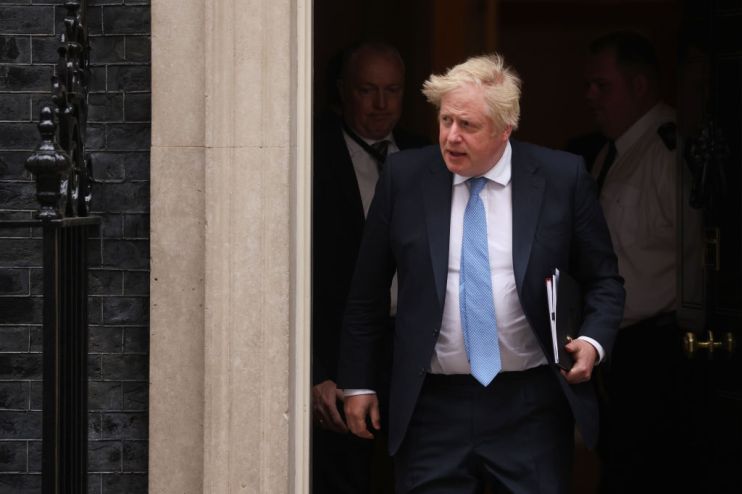Boris Johnson’s political survival could come at the cost of Britain’s rule of law

Last week epitomised a favourite phrase of political pundits: it was a “bruising week” for the government. This one, so far, isn’t shaping up to be much better, after the Northern Ireland Secretary Brandon Lewis compared fines handed out to the Prime Minister and the Chancellor to speeding tickets.
The partygate fines have been fraught with hyperbole. That Johnson became the first sitting Prime Minister to break the law sounds dramatic. But it needs perspective. Although the issuance of a fixed penalty notice indicates that the police think the prime minister has broken the law, it is not equivalent to a criminal conviction and will not be recorded formally. Boris Johnson does not now have “a criminal record”.
Lord Wolfson of Tredegar QC, a junior minister but a senior and experienced silk, added further spice by resigning. In his eloquent and lawyerly letter to the PM, he said the “scale, context and nature” of the rule breaking was “inconsistent with the rule of law”.
It was the very same Brandon Lewis, who brought Britain’s allegiance to the rule of law in question, when he told the House of Commons in September 2020 that the government was breaking international law – in a “specific and limited way” – with legislation to amend the EU withdrawal bill. His frankness caused consternation and fury: the government’s most senior legal official, Sir Jonathan Jones QC, resigned in protest.
Clearly this is an unedifying series of legal breaches by the government and do nothing for the UK’s reputation abroad – the so-called “Global Britain” we are pursuing. But there is something more too. In this post-Brexit era, the UK has to work harder than ever to define and promote the reasons that it remains a financially and commercially competitive place to do business. And it has long been argued the rule of law is one of the things which gives the UK a competitive advantage.
Yesterday, the CEO of Centrica reminded us why we trust the Conservatives, and not Labour with this mantle. Putting aside the relative burdens of different tax regimes – a “one off” windfall tax would undermine the principles of stability and predictability that make the UK an attractive place to do business, he said.
Are the Tories now hurtling towards a similar disregard for certainty? Is the behaviour of senior ministers actively harming the UK’s reputation abroad? The World Justice Project uses data which suggests our global “score” on this issue has declined over the past five or six years, although not dramatically. But the effect of these controversies can be corrosive. Combined with the government’s intentions to constrain judicial review, they chip away at the reputation for impartiality and independence, and risk casting the UK like other countries in which the legal system is “negotiable”.
It is possible to wax gravely on the status of the UK as the home of Magna Carta, the progenitor of the common law and wellspring of a thousand great and petty privileges which safeguard the individual and his or her right to do business untrammelled and protected from mischief. It is a strong brand, with much to commend it, and a vital weapon in the armoury to keep the UK competitive.
Yesterday, Boris Johnson continued his tried-and-tested defence: frightfully sorry, but there really are more important things to be getting on with.
It was Warren Buffett who famously said “It takes 20 years to build a reputation and five minutes to ruin it.” The point should not be lost on the government – and this is an important thing, even if the ten minutes or so with a birthday cake were not. Beneath the sloganising and the folderol, there is a potentially great story in the brand of Global Britain, but it must rest on solid foundations.